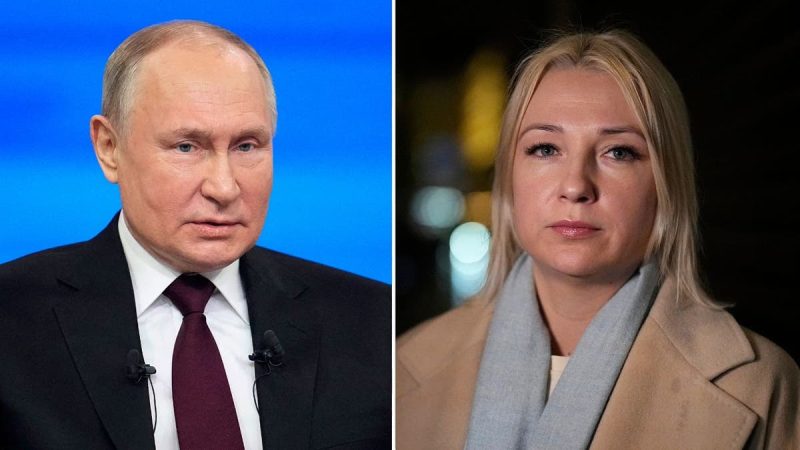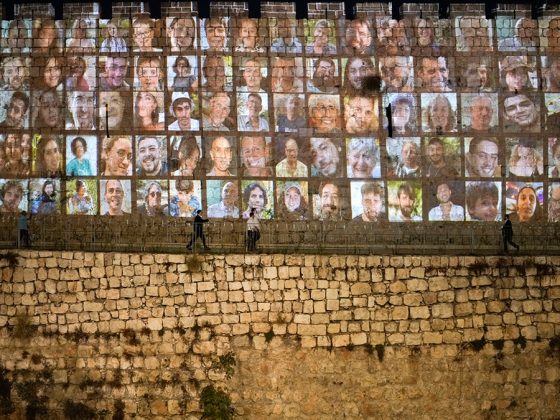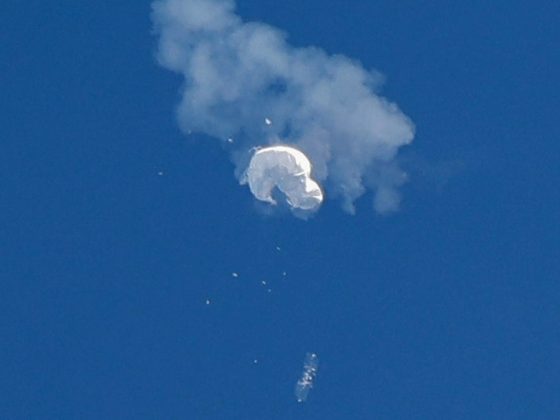A former TV journalist and Ukraine War critic has been disqualified from running against Russian President Vladimir Putin in next year’s presidential election.
Yekaterina Duntsova, 40, an independent politician who wanted to run on a platform to end the war with Ukraine, had her candidacy application unanimously rejected by the country’s electoral commission on Saturday, which cited ‘numerous violations’ in the papers she had submitted.
Duntsova had submitted her application on Wednesday having secured the endorsement of 500 supporters as required by Russian election law.
The commission found 100 errors in her nomination papers, including mistakes in the spelling of names, according to a Telegram channel close to Duntsova’s campaign.
The Central Election Commission (CEC) also had reason to believe that the minutes of the meeting with her supporters were prepared after the meeting itself, according to the Russian news outlet Kommersant. That meant that the election commission could not establish the size of the group itself, or its composition.
The decision is almost certain to reinforce critics’ views that the Kremlin will not tolerate any serious contender to go up against Putin in what will be the first presidential election since the start of the 22-month-long war with Ukraine. They have long viewed it as a fake process with only one possible outcome.
Duntsova, who is also a lawyer and was a member of a local legislature, wrote on Telegram that she would challenge the decision in the Supreme Court, calling it unjustified and undemocratic.
‘With this political decision, we are deprived of the opportunity to have our own representative and express views that differ from the official aggressive discourse,’ Duntsova wrote.
She also appealed to the leaders of the Yabloko (Apple) political party to nominate her as a candidate, as she said she would be unable to convene a second meeting of supporters. However, the party’s leader, Grigory Yavlinsky, said in an interview that Yabloko was not planning to field a candidate and would not back Duntsova, because the party didn’t know her.
The head of the electoral commission, Ella Pamfilova, offered words of consolation to Duntsova after her rejection.
‘You are a young woman, you have everything ahead of you. Any minus can always be turned into a plus. Any experience is still an experience,’ Pamfilova said.
Last month Duntsova called for the release of political prisoners and said Russians were ‘very tired’ of the conflict in Ukraine.
Putin submitted his nomination papers to the Central Election Commission on Monday for the March 17 election, which he is widely expected to win. The former intelligence officer remains hugely popular in Russia. His support spiked with the onset of the war against Ukraine, and he currently has an approval rating of 82%, according to Statista, a global data platform.
Putin has held continuous positions as president or prime minister since 1999. He has been president since 2012, with his previous stint as president running from 2000 to 2008.
Igor Girkin, who led pro-Russia fighters in eastern Ukraine in 2014, said that he wants to challenge Putin. Girkin is an outspoken pro-war blogger who has fiercely criticized Russia’s military strategy in Ukraine and is currently in jail awaiting trial for extremism, which he denies.
Others who have announced plans to run include former lawmaker Boris Nadezhdin, who holds a seat on a municipal council in the Moscow region.
Voting will take place over three days. The three-day window was first used during the COVID-19 pandemic, with officials saying it is more convenient for voters.
Extensions to the national voting window have been criticized as a risk to election integrity, necessitating ballots being kept safe overnight and complicating the jobs of poll watchers.
Voting will also be open to four regions of Ukraine partially and illegally annexed by Russia.
The CEC reported that 29 candidates had applied for nomination.
The Associated Press and Reuters contributed to this report.


